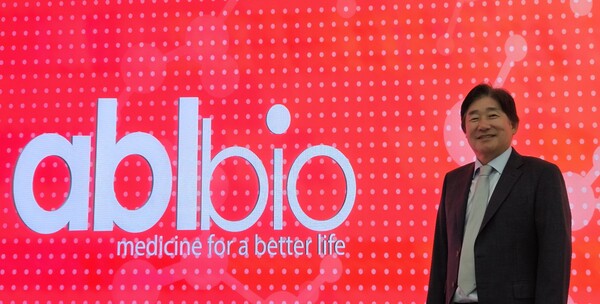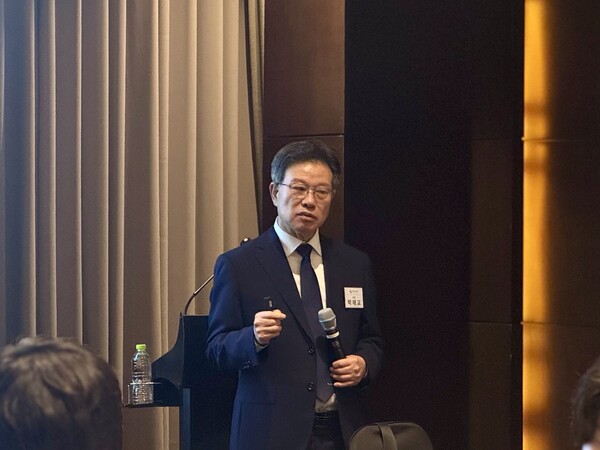
ABL Bio has terminated its antibody-drug conjugate (ADC) partnership with Korean biotech IntoCell, pulling the plug on a deal signed just nine months ago after discovering its lead payload pick was already covered by a hidden Chinese patent.
The fallout centers on NxT3, a topoisomerase I inhibitor and one of more than 30 proprietary camptothecin derivatives in IntoCell’s Nexatecan series.
The molecule had been selected as the “priority evaluation compound” in the October 2024 agreement, but it only surfaced recently in a patent published after the standard 18-month confidentiality window, leaving it undetected during the original due diligence process.
The move ends plans to combine NxT3 with ABL’s bispecific antibody pipeline across three preclinical oncology programs.
“There was no way to find it earlier,” an ABL spokesperson told Korea Biomedical Review. “After the 18 months passed, the patent became public, and that’s when we realized there was a conflict.”
ABL said it asked IntoCell to propose a fix, but discussions stalled. “They didn’t respond in the way we had hoped,” the spokesperson said. “Once we knew about the risk, continuing would have left us vulnerable. IntoCell didn’t really propose a solution until after we notified them we were walking away.”
The company is now shifting its bispecific ADC focus to Synaffix, a Dutch platform developer it partnered with in September 2023. Acquired by Lonza in June 2023, Synaffix already counts Amgen, Genmab, Boehringer Ingelheim, ADC Therapeutics, and many others among its partners.
There are no termination penalties in the IntoCell deal, but ABL won’t recover the 1.4 billion won (roughly $1 million) upfront payment.
IntoCell confirmed the patent clash in a regulatory filing Wednesday, noting that the overlapping compound had not been formally claimed in the Chinese patent but was described in the section outlining how the molecule was made.

At the time of the ABL deal, IntoCell said it had conducted two separate reviews to ensure it had the legal right to use the compound -- known as “freedom to operate” analyses -- but neither detected the issue. A third, more recent review flagged the overlap.
In a translated statement to shareholders late Thursday, IntoCell said the patent situation affects just one molecule in the Nexatecan series and stressed that the linker system -- OHPAS -- is fully protected under three global patent families.
“We believe the risk of patent infringement when using OHPAS is low,” IntoCell said, adding that U.S. law firm Foley Hoag, which manages IntoCell’s IP, confirmed that the ADCs using OHPAS remain patentable.
Still, the compound in question has now become prior art, limiting IntoCell’s ability to secure additional patents around it. The company said it is pursuing a non-exclusive license from the Chinese patent holder but declined to name the entity.
The timing raises the stakes. IntoCell went public on Kosdaq just six weeks ago, with the ABL Bio partnership touted as a key milestone.
In April, IntoCell CFO Suh Young-suk had said the company aimed to close 10 licensing deals by 2028, supported by 96 signed CDAs and 37 MTAs, and bring 10 ADCs to market “sometime in the 2030s.”
IntoCell shares fell nearly 26 percent on Thursday to close at 28,750 won ($20.96), after plunging more than 29 percent intraday and hitting a 52-week low. The company issued its statement after markets closed.
Asked whether it had alerted other partners to the issue, the company declined to comment.
One of those partners may be Samsung Bioepis. The biosimilar developer signed a joint research agreement with IntoCell in December 2023 to evaluate up to five investigational ADC candidates using the Nexatecan platform.
At the time, the companies said the collaboration would involve preclinical manufacturing and in vivo characterization, with the possibility of moving toward a broader development or licensing deal.
Samsung Bioepis did not disclose which specific Nexatecan compounds it is working with, and did not respond to a request for comment on whether any of its programs are based on NxT3 or a structurally similar molecule.
Related articles
- [BIO KOREA 2025] With GSK money in hand, ABL Bio guts old model and rebuilds in Gangnam
- IntoCell eyes 10 licensing deals by 2028 with Kosdaq IPO on deck
- IntoCell files for Kosdaq listing to expand ADC platform
- ABL Bio introduces platform tech to speed up developing bispecific ADCs
- IntoCell CEO denies patent issue as cause to scrap ABL Bio deal

